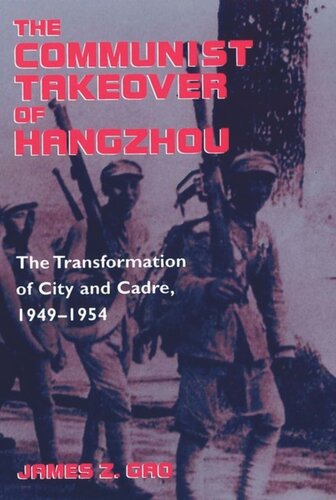

Most ebook files are in PDF format, so you can easily read them using various software such as Foxit Reader or directly on the Google Chrome browser.
Some ebook files are released by publishers in other formats such as .awz, .mobi, .epub, .fb2, etc. You may need to install specific software to read these formats on mobile/PC, such as Calibre.
Please read the tutorial at this link: https://ebookbell.com/faq
We offer FREE conversion to the popular formats you request; however, this may take some time. Therefore, right after payment, please email us, and we will try to provide the service as quickly as possible.
For some exceptional file formats or broken links (if any), please refrain from opening any disputes. Instead, email us first, and we will try to assist within a maximum of 6 hours.
EbookBell Team

0.0
0 reviewsExisting literature on the Chinese Revolution takes into account the influence of peasant society on Mao’s ideas and policies but rarely discusses a reverse effect of comparable significance: namely, how peasant cadres were affected by the urban environment into which they moved. In this detailed examination of the cultural dimension of regime change in the early years of the Revolution, James Gao looks at how rural-based cadres changed and were changed by the urban culture that they were sent to dominate. He investigates how Communist cadres at the middle and lower levels left their familiar rural environment to take over the city of Hangzhou and how they consolidated political control, established economic stability, developed institutional reforms, and created political rituals to transform the urban culture. His book analyzes the interplay between revolutionary and non-revolutionary culture with respect to the varying degrees with which they resisted and adapted to each other. It reveals the essential role of cultural identity in legitimizing the new regime and keeping its revolutionary ideal alive.